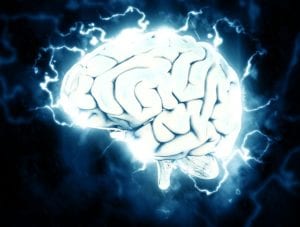
In the previous article on pedophilia, which is a highly contentious and controversial subject in itself, we discussed the “why” behind pedophilia. In essence, the idea that pedophilia may happen as a result of romantic and sexual desires that fail to mature as the individual grows and matures. What makes this idea somewhat revolutionary is that it removes the blame from the individual struggling with pedophilia, who up until now has been clearly labeled as a pervert, and assigns it instead to circumstance.
There are a lot of statistics surrounding pedophilia, child molestation, sexual abuse and child pornography available today. The truth of the matter however, is that a great deal of these statistics are the result of guesswork and extrapolation. Why? Because pedophilia, like so many other forms of sexual deviance, are not properly documented.
Pedophiles don’t tend to be willing to share the fact that they are sexually attracted to children, and who can blame them? At best, they will be reviled by the communities they live in. At worst they will become the subject of a witch hunt that could land them in prison. So most of them are reluctant to share the intimate details of their struggles. But make no mistake, it is a struggle.
One of the primary reasons for this misinformation is the fact that pedophilia is often incorrectly labeled as child molestation, when technically they are not the same thing. One is a sexual attraction to children, while the other is an active sexual assault of a minor. Many people live with these desires, but never commit a crime against a child. Conversely, some research shows that roughly half of all offenders who target children do not feel any sexual attraction to their victims at all.
This implies that not all pedophiles are guilty of child sexual abuse, while not all child sexual abusers are pedophiles. Similar to the “all pennies are coins, but not all coins are pennies” dilemma. Additionally, many people believe that pedophilia is a choice, a lifestyle that certain people select over other options. Research, however, shows otherwise.
Current research only reflects a portion of the pedophile population.
A good deal of the current research on pedophilia focuses on sex offenders, as uncaught pedophiles are very reluctant to speak out about their condition. As a result, the information we have is somewhat limited. However, what that research does suggest is that pedophilia may actually be a neurological problem. If a brain cannot accurately identify which stimulus should cause sexual arousal, then this disorder could be one result.
If indeed this theory proves correct, and pedophilia is determined to be a neurological disorder, then perhaps it can be treated, if not actually cured. Currently, there is no known cure for pedophilia. In addition, while treatment has never to date been successful in changing a person’s sexual interest in children, it can help curb the urges and potentially stop crime.
Join us next time, when we will be continuing this dialogue on pedophilia, and talking about what current research reveals about those who struggle with this disorder. Until then, if you or a loved one have been accused of a sex crime in Michigan, whether it’s sexual assault of a minor, molestation or rape, the skilled attorneys at The Kronzek Firm are here to help you.
No matter what your circumstances are, you are going to need to have the right legal defense team. Our history of successful defenses throughout Michigan is a testament to our hard work, commitment and dedication to our clients and their freedom. Call us today at 866-766-5245. We can help!


